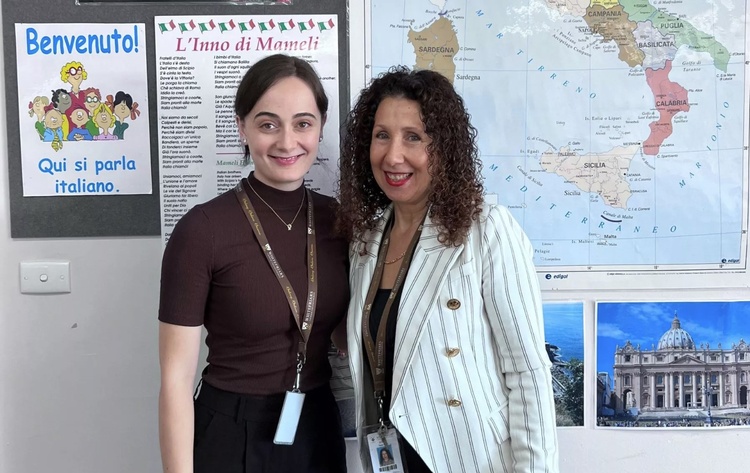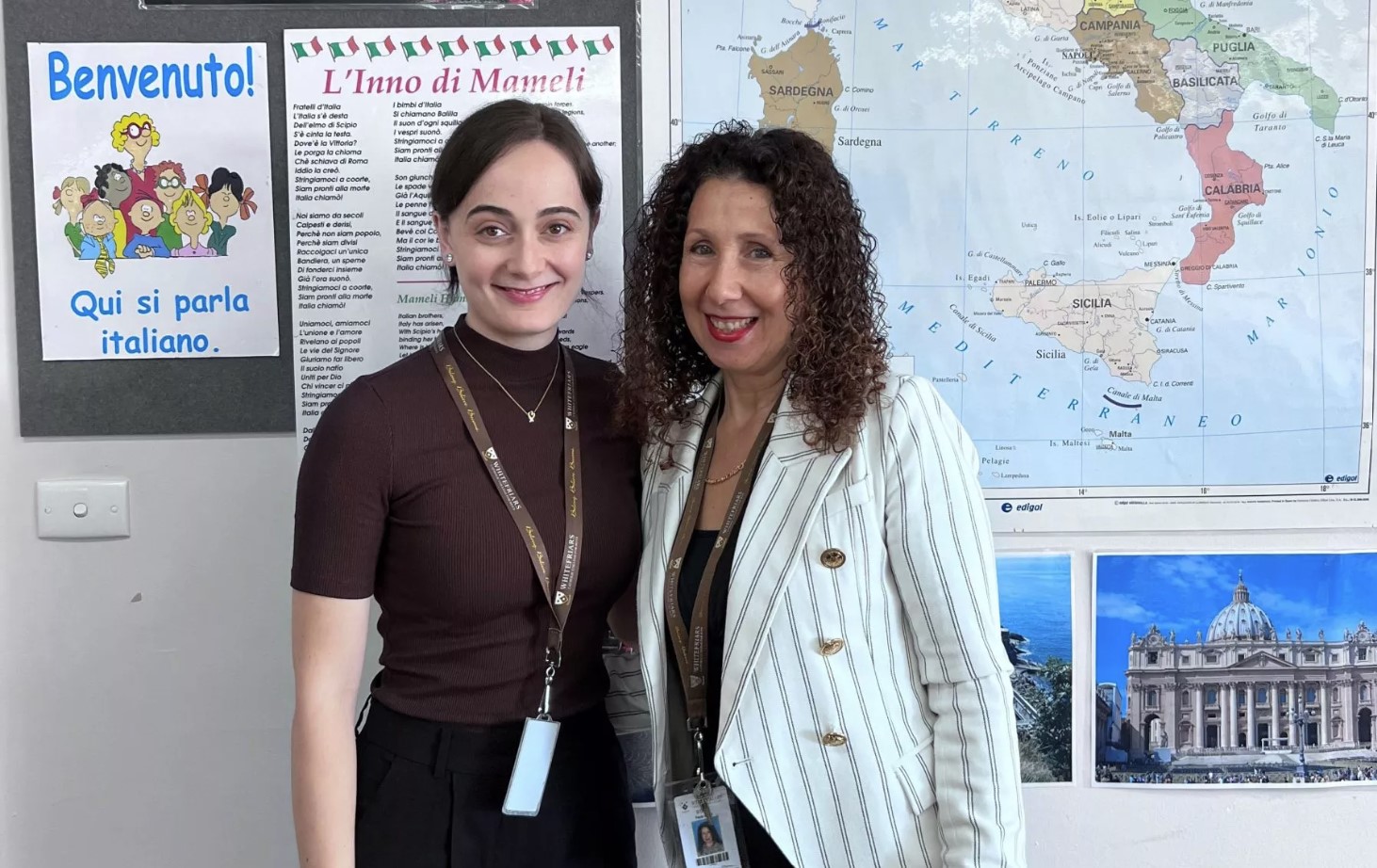MELBOURNE - Whitefriars Catholic College is a boys’ high school in Donvale, nestled in the countryside less than 30 kilometres from Melbourne’s CBD.
Founded in 1961, the school now has just over 1000 students who have access to myriad educational opportunities, including two foreign languages: Italian and Indonesian.
Until last year, Chinese was also an option, but the school decided not to continue the program. Students already studying Chinese can continue, however.
Although Italian is still the most popular choice, declining numbers still reflect the difficulties that have emerged since the pandemic, as ‘learning leader’ for languages and Italian teacher Paula Barca explains with colleague Olivia Zagari.
“We don’t have a Year 12 class this year and only five students in Year 11,” said Zagari.
“These are the kids who were most heavily impacted by the pandemic. They were in Years 7 and 8 and they missed being exposed to Italian classes.
“Now, we’re optimistically looking at Year 10 where we have 27 students. We think we can maintain a good number for VCE as well.”
The goal for the Italian teachers is now to bring the numbers back to at least pre-Covid levels. For this, they’re trying to entice students by offering them a variety of opportunities to engage with the language, as well as learn about Italian culture and traditions.
“The trip to Italy that we organise every two years is always a good incentive, but smaller things also help, like the international football tournament we held last year during the Women’s World Cup,” said Barca.
“The kids had a lot of fun challenging students from other languages,” she continued, before cheekily adding that “Italy of course won.”
Whitefriars Catholic College has partnered with the Istituto Ruffini di Imperia in Liguria for an exchange program. As a natural result, Italian and Australian students fly to the other side of the world to immerse themselves in a different culture and experience firsthand the lifestyle of their peers.
When they go to Italy, the Australian pupils spend a week in the classroom. This experience not only allows them to improve their language abilities and expand their vocabulary, but grants them a taste of the Italian school system and its differences.
Hosted by local families, they spend seven days completely immersed in the language before continuing on their journey to discover the Bel Paese.
“The trip lasts almost three weeks in total, and in addition to Imperia we go to Florence, where students participate in a cooking class, then Rome, Siena, Pisa, Milan and Venice,” shared Barca.
“It’s an incredible experience for everyone.”
For teachers, the biggest challenge is coming up with activities that are engaging and keeps interest high.
“It can happen - grammar becomes a bit too cumbersome for students and in that case, you risk losing them,” shared Barca.
“But to speak a language, you need to know grammar. So, we try to teach it without pointing it out to them, taking cues from real life.
“Exercises that include role-playing are one of the kids’ favourite activities. For example, we organised speed dating, during which they had a couple of minutes to introduce themselves to a partner before moving on to the next one.
“They had a great time.”
Barca and Zagari are familiar with the added value of a second language, as they are both of Italian descent. The former was born to parents from Abruzzo who always spoke to her in dialect.
“When I was still little, I started flipping through a dictionary we had at home and learned the verbs. My mum was very proud of me,” Barca recalled.
For Zagari, her love for Italian also began as early as elementary school, and she has since nurtured that love over the years by attending Co.As.It. classes on Saturdays.
“When I enrolled at university after so many years of Italian, I couldn’t imagine stopping. So, I decided to do a Bachelor of Science with a Diploma in Languages, before the master’s in teaching,” Zagari said.
“Looking back on my own Year 12 experience, I think the awareness that Italian gave me helped me express myself better in English.
“Even now that I’m a teacher, I tell my students about how Italian assisted me in the world of work as well, from my first part-time job in Chadstone, where, because there was a large Italian community, they were looking for bilingual people.”
Zagari also stresses how important the cultural aspect is for her, in addition to the linguistic one.












